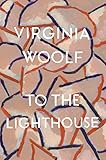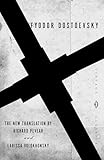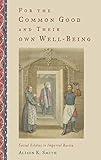This year I read two of the greatest novels ever written, but I’m going to start with something I’m even more excited to share. Back in January, I learned about Dorothy Richardson, who wrote a sequence of autobiographical novels, called Pilgrimage, published between 1915 and 1938; I had never heard of her, but she sounded interesting, and I wound up reading a dozen of her novels to my wife over the course of the year.
The first of them, Pointed Roofs, presents the mental world of a teenage English girl, Miriam (the author’s stand-in), teaching at a finishing school in Hanover, Germany, sometime in the early 1890s; the rest of the sequence takes place mostly in London, following Miriam as she finds a job in a dentist’s office and makes friends with various oddballs, like herself at odds with conventional Victorian life.








 The series is not for everyone, since there is essentially no plot, only the careful notation of the view from inside Miriam’s head—her thoughts about her life, the past and future, her immediate surroundings (her awareness of and love for nature remind me of Pasternak), language, and the few people of importance to her (those people drop out of sight for hundreds of pages, and sometimes we learn from a casual remark that one of them died at some undetermined time in some undetermined way). The closest thing to a plot is the continuing question of her relations with her Russian friend Michael, who introduces her to Russian literature and wants to marry her, but whom she does not want to marry. The books carry her through perhaps a couple of decades, but there is almost never any indication of what year it is, which can be frustrating if one cares about such things. But the prose is superb (it gives me great pleasure to read it aloud) and the evocation of turn-of-the-century London fascinating, and I think anyone who enjoys (say) Woolf’s To the Lighthouse would like these novels as much as I do (and Woolf herself was a fan).
The series is not for everyone, since there is essentially no plot, only the careful notation of the view from inside Miriam’s head—her thoughts about her life, the past and future, her immediate surroundings (her awareness of and love for nature remind me of Pasternak), language, and the few people of importance to her (those people drop out of sight for hundreds of pages, and sometimes we learn from a casual remark that one of them died at some undetermined time in some undetermined way). The closest thing to a plot is the continuing question of her relations with her Russian friend Michael, who introduces her to Russian literature and wants to marry her, but whom she does not want to marry. The books carry her through perhaps a couple of decades, but there is almost never any indication of what year it is, which can be frustrating if one cares about such things. But the prose is superb (it gives me great pleasure to read it aloud) and the evocation of turn-of-the-century London fascinating, and I think anyone who enjoys (say) Woolf’s To the Lighthouse would like these novels as much as I do (and Woolf herself was a fan).
The two great novels I mentioned above were Anna Karenina and The Brothers Karamazov, which I read in close succession, the latter for the first time in decades and the former for the first time ever (I would definitely have won a round of David Lodge’s parlor game Humiliation). Tolstoy and Dostoevsky are at the top of their respective games here, and it was fascinating to have the chance to compare them; I’ll mention a couple of similarities I might not have noticed otherwise. Both novels include plot lines that, strictly speaking, are irrelevant to the main plot: in Anna Karenina it’s Levin’s coming to terms with the dissatisfactions of everyday life and the quandaries of landowning, and in Karamazov it’s Alyosha’s interactions with Father Zosima in the monastery.
But as I told my brother, who asked if I found Levin as insufferable as he did, he’s insufferable because he’s a self-portrait and Tolstoy was insufferable in the same ways, and the novel wouldn’t have existed without him (Tolstoy was already in the process of giving up on literature and had little desire to finish the novel until he realized he could use it to promote his theories about peasants and landowners and their relation to the land). The same is true of Zosima, since Dostoevsky had been desperate to present his image of a Christ-like man for many years (Prince Myshkin in The Idiot was one of his attempts), and for him this was the moral center of the novel. And both novels employ what Gary Saul Morson (the best critic of Russian literature I know) calls vortex time, in which time appears to swirl down and in to create a sense of inevitability: This is what Anna feels as she is swallowed up by her suicidal impulse, and it is what the prosecutor forces Dmitry into in the great trial scenes of Karamazov. For what it’s worth, I finished Karenina with a feeling of pleasure and satisfaction, and Karamazov with a desire to reread it before too long.
Two other novels I want to mention are Joseph Conrad’s Under Western Eyes (by no means a great novel but a very readable and intense one, and a fascinating look at radical life in Geneva in the early years of the 20th century) and Cathleen Schine’s The Grammarians, an absolutely delightful novel about language-obsessed twin sisters I gobbled up in two days.
I also read a number of excellent scholarly histories, which I will simply list with a brief description of each and my highest recommendation for them all.
Toby Wilkinson’s The Rise and Fall of Ancient Egypt is superb, making Egypt a place with a real history like those of other countries rather than a timeless land obsessed with the afterlife; it’s worth the price just for the set-pieces on the Battle of Kadesh and the invasion of the Sea Peoples. Alan Taylor is one of my favorite historians, and American Revolutions is a worthy sequel to his riveting American Colonies (if you haven’t read that one, remedy the omission forthwith). Wayne Dowler’s Russia in 1913 convincingly argues against the usual portrait of tsarist Russia as a backward land stifled by autocracy and ripe for revolution; he shows it modernizing in every area and headed for a prosperity that would have been inevitable if not for World War One. Alison K. Smith’s For the Common Good and Their Own Well-Being: Social Estates in Imperial Russia brings a dazzling array of evidence to bear on a vital but often neglected aspect of pre-revolutionary Russian life.
Finally, Marcus C. Levitt’s Russian Literary Politics and the Pushkin Celebration of 1880 sounds so narrowly focused as to be useful only to specialists, but in fact it’s wonderfully written and full of enlightening episodes (like the mobs that descended on bookstores in 1887 on the 50th anniversary of Pushkin’s death, when the copyright on his works expired and cheap editions were suddenly available); anyone interested in Russian literary history will enjoy it.
More from A Year in Reading 2019
Don’t miss: A Year in Reading 2018, 2017, 2016, 2015, 2014, 2013, 2012, 2011, 2010, 2009, 2008, 2007, 2006, 2005









